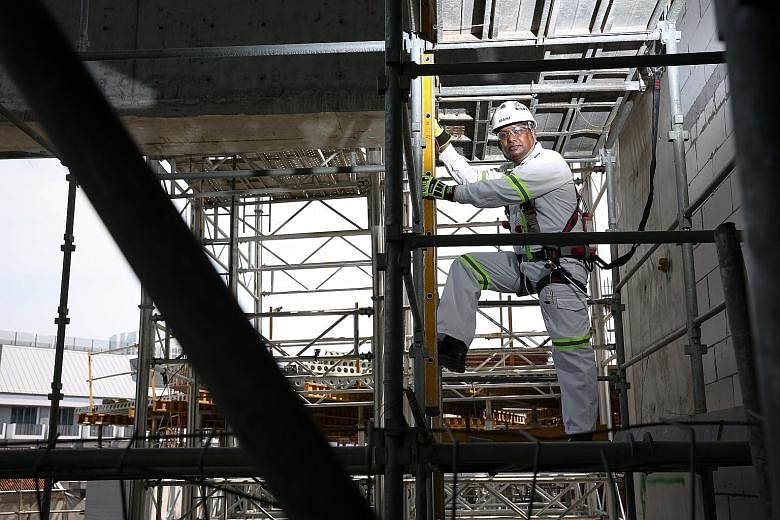To keep tabs on its workers' safety, scaffolding company Wee Chwee Huat has spent about $15,000 on smartphones for 50 supervisors and other higher-level staff.
The result is a constant stream of WhatsApp updates, as supervisors from various sites pepper the bosses with photos of toolbox meetings, safety checks and status reports.
This enables the company to monitor activities on all of its 10 sites, and operations manager V. Manimaran, 48, feels that the money is well spent. If a supervisor forgets his safety check or a worker gets bruised by a broken trolley, he knows about it at once.
Mr Manimaran estimates that Wee Chwee Huat devotes between 5 and 8 per cent of its budget to safety - higher than the market average of 3 to 5 per cent.
Its scaffolding projects can range from $5,000 for changing the lights in a shopping centre, to $5 million for a 30-storey development.
The 47-year-old company has about 130 workers, half in construction and half in shipyards. Like many other small and medium- sized enterprises, it has been hit by the slowdown in the construction sector. Mr Manimaran estimates the firm sees about 20 to 25 per cent fewer jobs than two years ago.
But even in the effort to cut costs, it avoids cutting corners when it comes to safety. "Taking the focus off safety during a downturn is penny wise, pound foolish," says Mr Manimaran. Instead, he takes advantage of the downtime to send workers for training. He wants them to be skilled in more than one area - a scaffolding supervisor, for instance, should also get trained to oversee lifting operations. "This makes us leaner in the long run, and it gives the workers a career path."
He also stresses the importance of better time management and simpler designs. "We work shorter hours with no overtime," he says. "We don't just erect scaffolding blindly - keeping the work to eight hours forces us to prioritise."
Wee Chwee Huat has had no fatalities for least a decade. The last injury it reported was about four months ago, when an inexperienced worker got too close to a high-powered water jet and had his finger sliced open.
Mr Manimaran has now started the practice of offering 10 $20 shopping vouchers a month to workers who spot safety hazards - on their own site or even in the street - and send him a photo. "It makes them conscious of safety, wherever they are."


